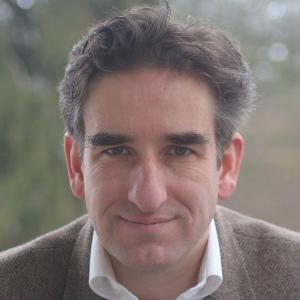Two researchers receive ERC Advanced Grants for projects at LMU
1 Aug 2025
Biochemical reaction networks and the fundamental logical principles of mathematics: the European Research Council awards two prestigious grants to projects at LMU.
1 Aug 2025
Biochemical reaction networks and the fundamental logical principles of mathematics: the European Research Council awards two prestigious grants to projects at LMU.
LMU chemist Christian Ochsenfeld and logician and historian of science Jan von Plato (University of Helsinki; joint project with LMU) have been awarded Advanced Grants by the European Research Council (ERC). The funding of up to 2.5 million euros supports highly innovative research projects that go beyond the current state of research and forge ahead into new research territories.

© Christian Ochsenfeld
Christian Ochsenfeld is Professor of Theoretical Chemistry in the Faculty of Chemistry and Pharmacy at LMU.
Understanding and controlling molecular and catalytic processes requires comprehensive insights into chemical and biochemical reaction networks. However, decoding these complex mechanisms is anything but trivial. With his project QCexplore (Quantum Chemical Exploration of Reaction Networks: From Origins of Life to De Novo Enzyme Design), Christian Ochsenfeld wants to provide a generally applicable solution to this challenge by developing an autonomous quantum chemical method for exploring reaction networks and a highly efficient, fully automated open-source software framework.
“The starting point is our proof-of-concept approach for a computer-aided hyperreactor, which we presented in 2024,” explains the chemist. By combining reactivity-boosting concepts with rapid, linear-scaling quantum chemical methods, the QCexplore framework facilitates the efficient and reliable exploration of reaction networks under fully controlled and realistic conditions. “The incorporation of novel data mining techniques in conjunction with efficient refinement methods enables us to effectively use and analyze the data to identify relevant reaction pathways.” In this way, QCexplore overcomes traditional manual and error-prone approaches.
The incorporation of novel data mining techniques in conjunction with efficient refinement methods enables us to effectively use and analyze the data to identify relevant reaction pathways.Christian Ochsenfeld
The capability of the framework developed by QCexplore will be demonstrated using the example of key questions concerning the origins of life, such as how essential molecular building blocks are formed and combine to form larger aggregates like strands of RNA. In addition, the project will seek to create a solid foundation for the de novo design of artificial enzymes by precisely identifying the principal steps in catalytic processes, ascertaining the dominant reaction pathways, and pointing out strategies for boosting enzymatic activity and selectivity.
Many subdomains of mathematics, such as analysis, are based on fundamental logical principles. In the history of mathematics, numerous researchers have worked on the development of these principles. These include the Swiss mathematician Paul Bernays, his student, the German mathematician Gerhard Gentzen, and the Austrian mathematician, philosopher, and logician Kurt Gödel. In recent years, Finnish logician and historian of science Jan von Plato from the University of Helsinki has studied their work intensively. In an ERC Advanced Grant project undertaken jointly with LMU, he is now devoting himself to writings by the three researchers that have been largely inaccessible thus far.
The aim of the HERITAGE project is to transcribe the writings of Gödel, Gentzen, and Bernays on a key problem in the foundations of mathematics – the consistency of analysis. These writings were recorded in the forgotten Gabelsberger system of stenography, a form of shorthand, and the project sets out to transcribe this material, translate it into English, and then interpret the contents. Before now, these rich sources were scarcely comprehensible on account of their obscure characters, which are impossible to read without special training. In previous projects, Jan von Plato has already interpreted shorthand notes by Gödel and Gentzen, but never on the main subject – the foundations of modern logic and the consistency of analysis.
For Kurt Gödel alone, there are sixteen workbooks (Arbeitshefte), each containing up to a hundred pages, the “most important uncharted source” according to von Plato. For Gerhard Gentzen, there are extensive shorthand notes on two key areas of analysis. And for Paul Bernays, there are detailed shorthand notes for two lecture courses on logic in Göttingen from 1927 and 1929/30. These sources surpass by a wide margin anything known before about the birth of today’s logic, observes von Plato.
The project as a whole points at a new approach for the wider-ranging study of the development of science and philosophy. It is estimated that there exist thousands of lecture courses by professors in German-language universities – or “Mitschriften” as they are called. The study of these vast sources will open up a new, third type of source in the history of science, next to (a) publications and author manuscripts and (b) correspondence. These sources can answer questions such as: How were the new theories presented to students at the time?
Prof. Jan von Plato is a logician and historian of science and Professor of Philosophy at the University of Helsinki. From 2018, he headed the ERC Advanced Grant Projekt GODELIANA on Kurt Gödel’s unpublished shorthand writings.